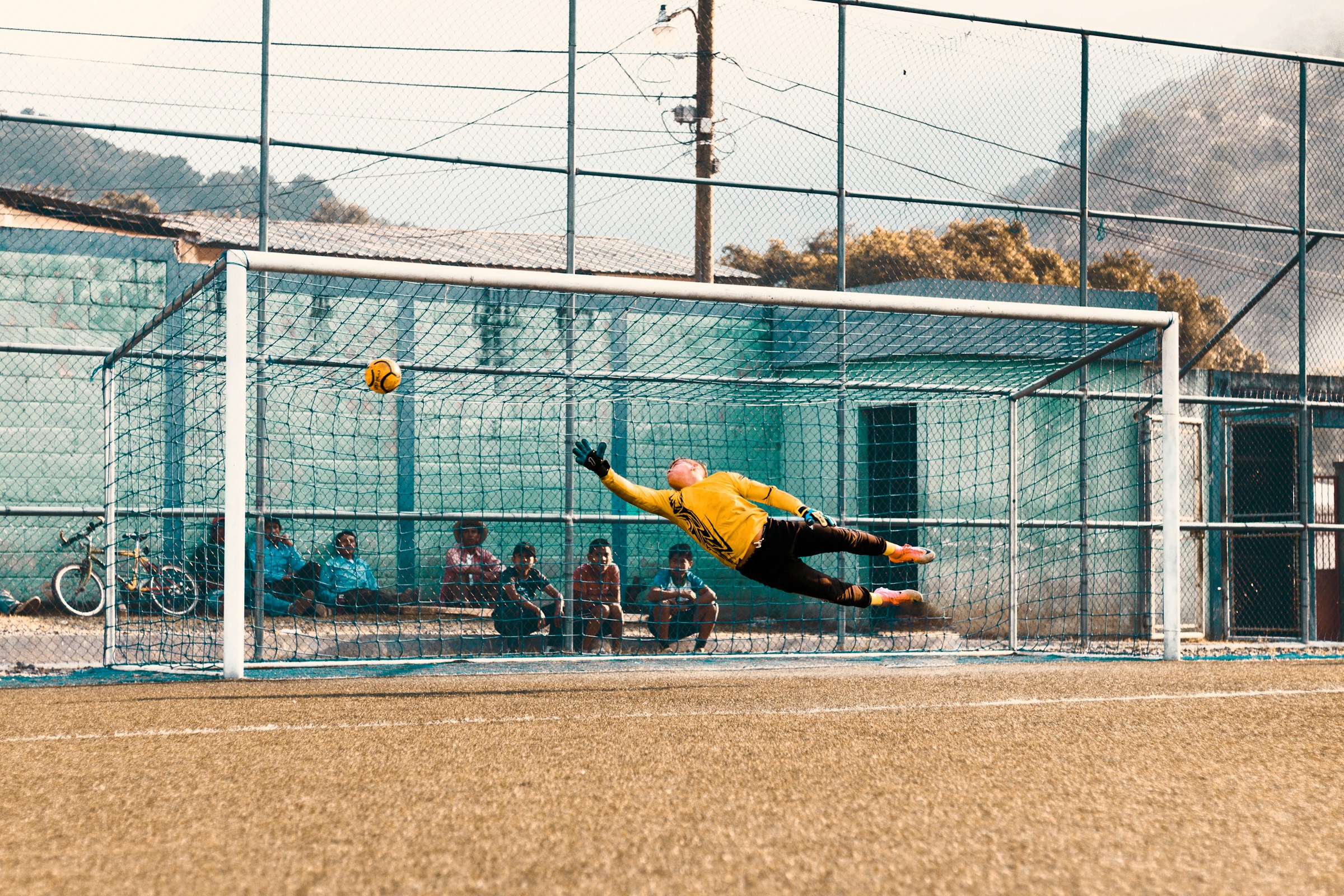As you navigate the world of modern sports, you’re likely to stumble upon a groundbreaking development. Virtual reality (VR) is transforming the traditional training methods of soccer, creating a more immersive experience for players. With the advent of this technology, participants are receiving a more in-depth and practical understanding of the game, enhancing their skills and decision making in real-time scenarios. This article will explore the significant role VR plays in improving goalkeeping skills in soccer.
Virtual Reality: A New Era in Soccer Training
VR has been identified as a robust tool in the sports world, with increasing recognition of its potential in soccer training. It provides a virtual yet practical platform for players to elevate their performance, particularly goalkeepers who play a critical task in a football match.
A lire en complément : What nutritional strategies optimize energy levels for cricketers during test matches?
When you think about goalkeeping, it’s an intricate mix of skills and decision making. A goalkeeper needs to make split-second decisions, be prepared for any incoming ball, and have an unwavering focus on the game. VR offers goalkeepers the chance to train for these scenarios in a controlled, entirely replicable environment.
As per data derived from sources like PubMed and CrossRef, VR training has shown significant improvements in athletes’ performance. It allows goalkeepers to experience realistic game situations, enhancing their reaction time, decision making, and anticipation of ball trajectory.
Dans le meme genre : How can anti-gravity treadmills facilitate faster rehabilitation for football players with ankle injuries?
Fine-tuning Goalkeeping Skills through Virtual Reality
In the realm of soccer, VR is emerging as a game-changer in honing goalkeeping skills. The technology allows goalkeepers to partake in a virtual training environment that mirrors real-life match scenarios. Goalkeepers can practice their decision-making skills, ball-handling techniques, and of course, understand the best methods to block a shot.
For instance, VR can simulate the intense moment of a penalty kick. The goalkeeper, donning a VR headset, is immersed in a virtual stadium filled with virtual spectators. As the penalty taker approaches the ball and shots, the goalkeeper must decide in a fraction of a second where the ball is heading and make the move to save it. The tracking data from this scenario can provide invaluable insights into a goalkeeper’s performance, reaction time, and decision making.
A Look at VR Training from a Scholar’s Perspective
The scholar community has extensively studied the impact of VR on sports training, particularly soccer. They have found that VR provides a closer approximation to real-life scenarios, adding a valuable tool for practice and learning.
Scholars have recognized that VR training enhances the spatial awareness of the goalkeeper, making them more adept at predicting where the ball will land. VR also nudges players into faster and more effective decision making, a skill that often differentiates between a saved goal and a missed opportunity.
The scholars also note that VR provides a safe space for trial and error, a significant factor in learning. Goalkeepers can attempt different strategies in the VR environment, learning from their mistakes without the fear of real-world consequences.
Real vs. Virtual: Complementing Traditional Training
While VR is a remarkable tool for training, it does not replace the need for real-world practice. Instead, it complements traditional training methods by providing a platform to practice and refine skills in a controlled environment.
VR training allows for a more personalized approach to learning. Coaches can adjust the virtual scenarios according to the individual goalkeeper’s strengths and weaknesses, helping them to focus on specific areas of improvement. In contrast, real-world training provides the physical rigor and the unpredictability of a live match scenario.
The Future of VR in Soccer Training
Adopting VR in soccer training is not a passing trend. It’s a step towards modernizing the traditional training process, making it more engaging, immersive, and effective. While VR is currently leveraged primarily to hone goalkeeping skills, there is immense potential for its application in other aspects of soccer training.
Looking forward, it’s safe to say that VR will continue to revolutionize soccer training. It won’t be long before we see VR becoming an integral part of every soccer club’s training regimen, expanding beyond goalkeepers to all players.
So, as you delve deeper into the world of soccer, keep an eye on VR. It’s not just making waves – it’s reshaping the landscape of sports training. And in the process, it’s helping to create more skilled, confident, and agile goalkeepers, ready to face the challenges of the most unpredictable and exciting game on the planet – soccer.
Effect of Virtual Reality on Cognitive Skills and Injury Prevention
Consider the cognitive skills and decision-making abilities that a goalkeeper requires during a match. Not only must they anticipate the trajectory of the ball, but they must also predict the intentions of the opposing players. They must be aware of their positioning, the positioning of their teammates, and the positioning of the opposing team. Google Scholar and PubMed articles have shown how virtual reality can help to develop these cognitive skills.
In virtual training sessions, goalkeepers can face an array of scenarios that allow them to practice their decision-making skills without the physical demands of a real match. This focused training can help develop their cognitive skills, improving their ability to quickly and accurately assess a situation and make the right decision.
At the same time, injury prevention is a significant concern in sports training. Traditional goalkeeper training can be physically demanding and carry the risk of injury. With VR, goalkeepers can practice without the physical risks associated with real-world training. They can train in a virtual environment in which coaches can control the variables, reducing the risk of injury.
Through this combination of cognitive skill development and injury prevention, VR provides an advantageous addition to traditional goalkeeper training.
Virtual Reality: A Valuable Tool in Physical Education and Sports Training
Physical education and sports training have always embraced innovation, and VR is no exception. The ability to simulate real-life scenarios in a controlled virtual environment presents an unprecedented opportunity for sports training.
Goalkeepers, more than any other player on the pitch, need to have sharp perceptual and cognitive skills. They need to make quick decisions under extreme pressure, often in split seconds. Training in a virtual environment provides goalkeepers with countless opportunities to develop these skills.
Furthermore, VR allows for systematic review and feedback. Coaches can review every move a goalkeeper makes in the virtual environment. They can analyze every decision, every reaction, and every strategy. This in-depth analysis, which is not possible in traditional training, can provide valuable insights into improving the goalkeeper’s performance.
In physical education, the use of VR extends beyond soccer. It can be used in various sports to simulate real-life scenarios, providing athletes with a safe and controlled environment to practice and improve their skills. From basketball to tennis, athletes can benefit from VR training.
Conclusion: Stepping into the Future with VR
The introduction of virtual reality in sports training, particularly in soccer, heralds a new era of innovative training methods. This article has shown how VR can be an indispensable tool in improving goalkeeping skills in soccer. With its ability to simulate real-life match situations in a controlled virtual environment, VR provides a platform for goalkeepers to practice their cognitive skills and decision making.
Training with VR is not just about technology; it’s about developing human potential. By immersing themselves in virtual environments, soccer players, and in particular goalkeepers, can enhance their performance on the pitch. What’s more, VR training is safe and controlled, reducing the risk of injury.
So, the future looks bright for soccer training with VR. It promises a more engaging, personalized, and effective training experience. With its potential to develop cognitive skills, enhance decision-making abilities, and prevent injuries, VR is set to play a pivotal role in the future of soccer training. It’s not just about goalkeeping – the entire landscape of soccer training is poised for a significant transformation. As the world of soccer continues to evolve, so too does the role of VR in shaping its future.






